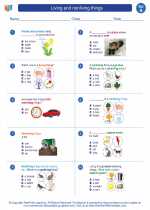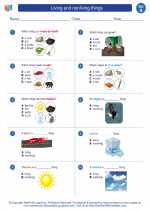Hydraulics
Hydraulics is a branch of science and engineering that deals with the mechanical properties of liquids, particularly water and oil, and their applications in various systems. It focuses on the behavior of fluids and how they can be utilized to generate, control, and transmit power.
Key Concepts
- Fluid Properties: Understanding the physical properties of liquids, such as density, viscosity, and pressure.
- Pascal's Law: The principle that states that a change in pressure applied to an enclosed fluid is transmitted undiminished to all portions of the fluid and to the walls of its container.
- Hydraulic Systems: The use of pressurized fluids to perform work, such as in hydraulic machinery, lifts, brakes, and steering systems.
- Hydraulic Components: Components such as cylinders, pistons, valves, pumps, and motors used in hydraulic systems.
- Hydraulic Principles: Understanding the relationship between force, pressure, and area in hydraulic systems.
Study Guide
To understand hydraulics, it's important to grasp the fundamental concepts and principles. Here are some key topics to focus on:
- Learn about the properties of fluids, including how they flow and exert pressure.
- Understand Pascal's law and how it applies to hydraulic systems.
- Explore various hydraulic systems, such as hydraulic brakes and lifts, and how they work.
- Study the components of hydraulic systems and their functions.
- Practice solving problems involving force, pressure, and area in hydraulic systems.
By mastering these concepts, you will gain a solid understanding of hydraulics and its practical applications in engineering and technology.
Good luck with your studies!
.◂Science Worksheets and Study Guides First Grade. Living and nonliving things
Study Guide Living and nonliving things
Living and nonliving things  Activity Lesson
Activity Lesson Living & Non-living Things
Living & Non-living Things  Worksheet/Answer key
Worksheet/Answer key Living and nonliving things
Living and nonliving things  Worksheet/Answer key
Worksheet/Answer key Living and nonliving things
Living and nonliving things  Worksheet/Answer key
Worksheet/Answer key Living and nonliving things
Living and nonliving things  Worksheet/Answer key
Worksheet/Answer key Living and nonliving things
Living and nonliving things  Vocabulary/Answer key
Vocabulary/Answer key Living and nonliving things
Living and nonliving things 

 Activity Lesson
Activity Lesson
 Worksheet/Answer key
Worksheet/Answer key
 Worksheet/Answer key
Worksheet/Answer key
 Worksheet/Answer key
Worksheet/Answer key
 Worksheet/Answer key
Worksheet/Answer key
 Vocabulary/Answer key
Vocabulary/Answer key

The resources above cover the following skills:
Concepts of Life Science (SC1, SC2, SC3)
The student demonstrates an understanding that all organisms are linked to each other and their physical environments through the transfer and transformation of matter and energy by identifying and sorting examples of living and non-living things in the local environment. (L)